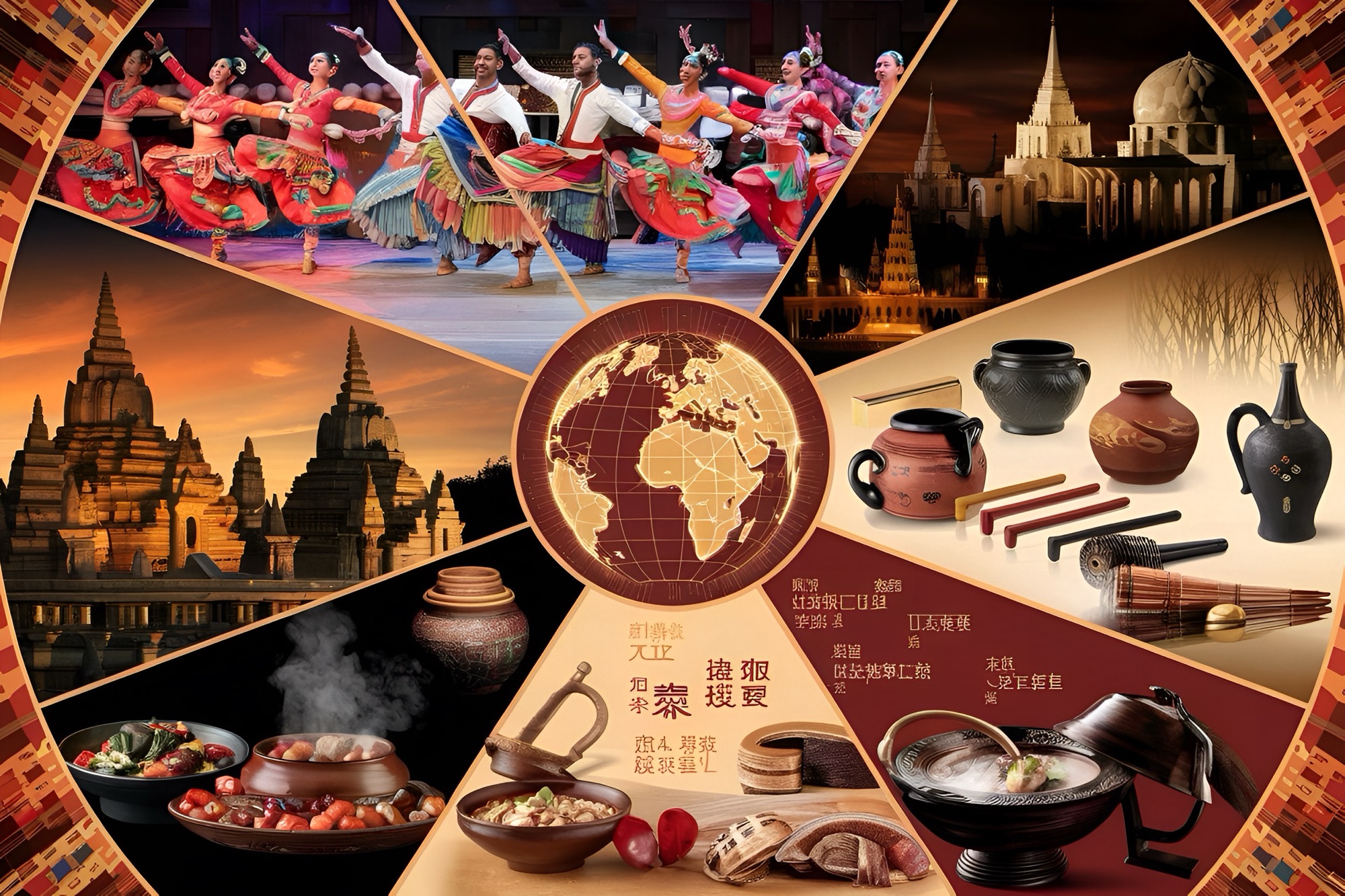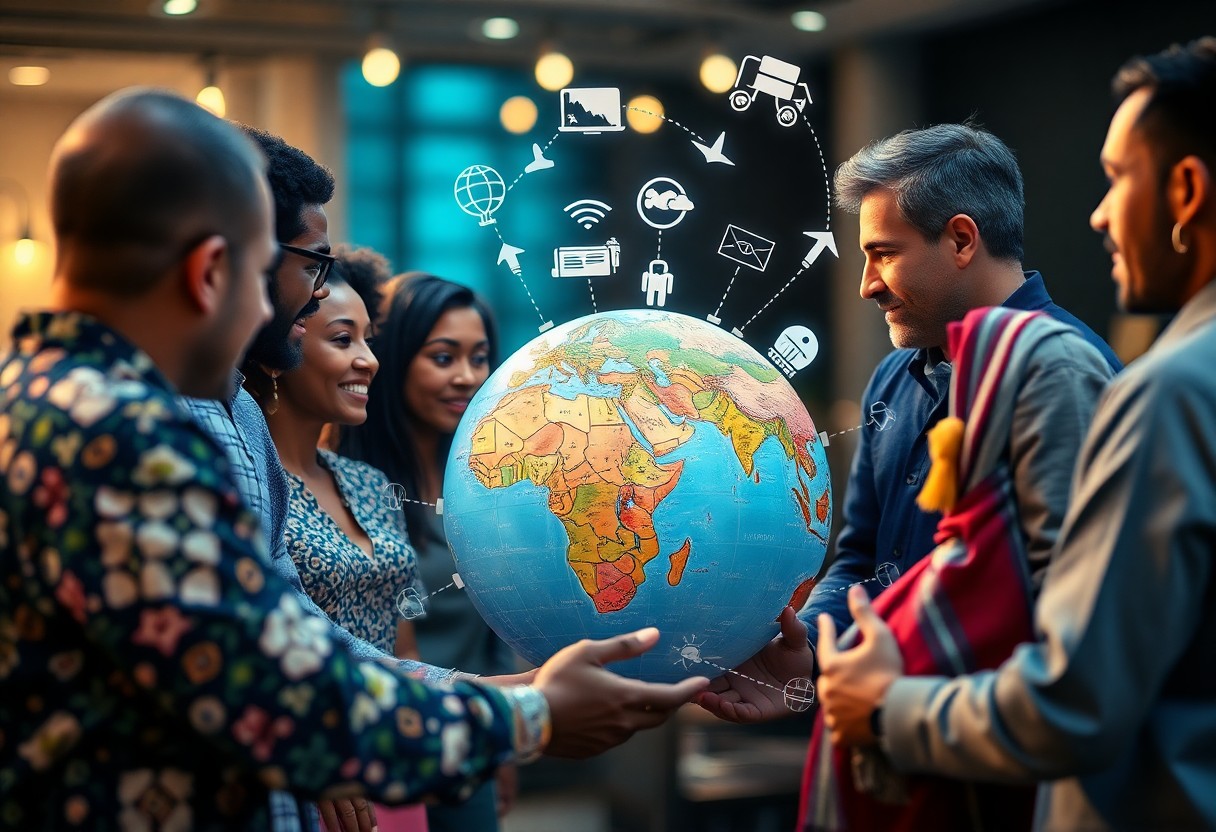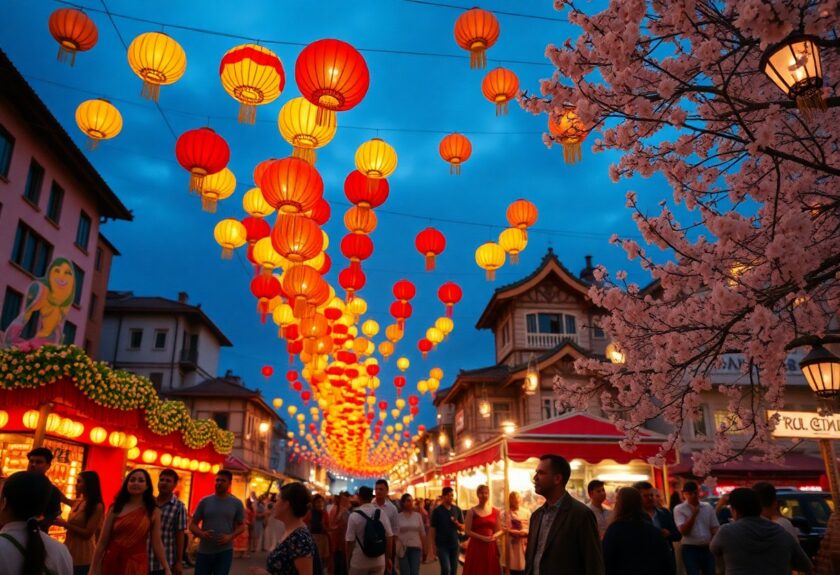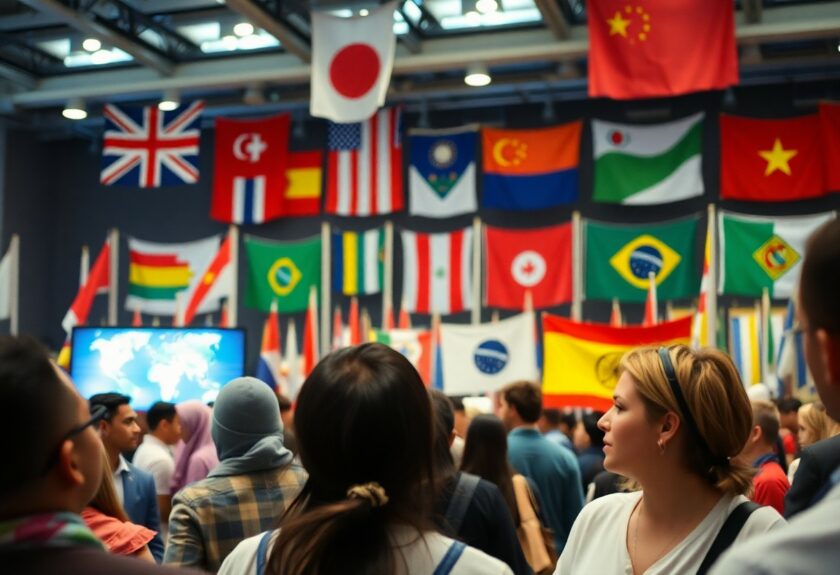Diversity is not merely a buzzword; it represents the tapestry of human experience shaped by world events that resonate across borders. As you navigate your place in this globalised society, understanding these events and their ripple effects is vital. From cultural exchange to conflict, every incident influences your interactions and perceptions of others. This post will illuminate how collective experiences contribute to cultural diversity and enhance your awareness of the interconnected world in which you live.
Historical Context of Globalisation
The historical context of globalisation reveals a complex tapestry of trade, conquest, and cultural interchange that has shaped the modern world. From ancient trade routes such as the Silk Road to the era of European exploration, each phase contributed to an ever-deepening interconnectedness among societies. Understanding this background allows you to appreciate how historical events, driven by economic, political, and social forces, have paved the way for the diverse global culture you experience today.
Key Milestones in Global Interactions
Beside traditional exchanges, significant milestones such as the Age of Discovery, the Industrial Revolution, and the advent of the internet, have transformed global interactions. These pivotal moments enabled unprecedented levels of trade, cultural exchange, and communication, profoundly affecting how societies connect and collaborate. Recognising these milestones helps you grasp the dynamics that continue to influence your globalised world.
 The Evolution of Cultural Exchange
The Evolution of Cultural Exchange
At its core, cultural exchange has evolved dramatically over centuries, deeply enriching societies through shared ideas, traditions, and practices. The movement of peoples, goods, and information has facilitated exchanges that shaped cultural identities and norms across the globe.
To further understand this evolution, you should consider the impact that colonisation and migration have had on cultural exchanges. For instance, the spread of languages and artistic movements reflects both the positive and negative aspects of these interactions. While cultural fusions can lead to enhanced creativity and understanding, they can also result in the erosion of local traditions and identity. Thus, acknowledging both sides of cultural exchange empowers you to engage more thoughtfully with the diverse influences that shape your world today.
The Impact of World Events on Cultural Dynamics
There’s a profound interplay between world events and cultural dynamics, shaping how societies interact and evolve. As global occurrences ripple through communities, they influence shared identities, values, and practices, reflecting the interconnection of our increasingly globalised society. Understanding this relationship is vital to appreciate the cultural mosaic that defines human experience.
Major Historical Events and Their Cultural Implications
Their repercussions on societies are often profound, leading to shifts in cultural norms and values. For example, events like World Wars, colonialism, and the rise of the internet have altered how cultures circulate and interact. Consequently, cultural exchanges can result in a rich blend of practices or, conversely, in cultural isolation and conflict.
 Case Studies of Cultural Shift
Case Studies of Cultural Shift
Beside the historical lens, various case studies illustrate significant cultural shifts influenced by global events:
- The Berlin Wall (1989): Post-fall cultural integration in East and West Germany led to a 20% increase in intercultural collaborations and exchanges.
- The Arab Spring (2010-2012): Sparked widespread social movements, contributing to a 50% rise in youth activism in affected regions.
- The COVID-19 Pandemic (2020): Accelerated digital cultural consumption, with a reported 75% increase in online engagement across various platforms.
Implications of these case studies highlight the transformative power of global events on culture. For instance, the Berlin Wall’s fall not only symbolised political change but also initiated a cultural dialogue that reshaped both nations over decades. Similarly, the Arab Spring highlighted how grassroots movements can influence societal values and beliefs profoundly. The impact of COVID-19 forecasts a future where virtual interactions redefine cultural consumption and community building, suggesting that with both challenges and opportunities, the cultural landscape will continue to evolve in unexpected ways.
Globalisation and Cultural Identity
There’s no denying that globalisation significantly impacts your cultural identity. As societies become increasingly interconnected, you may find that traditional values and practices coexist with international influences. This blend can enrich your cultural experience, yet it also brings about the challenge of maintaining your unique identity amidst the overwhelming tide of global culture.
The Balance Between Global and Local Cultures
Globalisation creates a complex relationship between global and local cultures, where you must navigate diverse influences while cherishing your local heritage. This interplay allows for a richer cultural narrative, but it also tests the resilience of local traditions that may feel at risk of fading into the backdrop of the global stage.
Hybrid Cultures in a Globalised World
Any culture in today’s interconnected world is often a hybrid, blending elements from various global influences. This dynamic exchange allows you to experience a multitude of perspectives, resulting in a rich tapestry of cultural expressions that make everyday life vibrant and diverse.
Cultures evolve continuously, and in a globalised world, you will find that hybrid cultures emerge as a result of intermingling traditions, languages, and practices. On one hand, the creation of hybrid identities may enhance your understanding and appreciation of different backgrounds, leading to greater social connectivity. However, there’s also a potential risk of losing important cultural nuances that are vital to your identity. Embracing these hybrid cultures means balancing the opportunity for growth against the need for preserving the distinct traits that define you and your community. Striking this balance is key to thriving in a diverse, globalised society.
The Role of Technology in Cultural Exchange
Your understanding of cultural exchange in a globalised society is significantly shaped by technology. Tools like video conferencing, social media, and collaborative platforms facilitate connections across diverse cultures. As highlighted in The Power of Cultural Diplomacy: Building Bridges – SPP Blog, technology acts as a bridge, fostering an environment where cultural appreciation and exchange flourish, ultimately enriching your global perspective.
Social Media and Cultural Transmission
The rise of social media has transformed the way cultures interact and share traditions. With platforms like Instagram and TikTok, you can easily absorb and share cultural practices, from dance trends to culinary arts, creating a dynamic space for cultural transmission and exchange.
The Internet’s Influence on Local Cultures
Role of the internet in local cultures is a double-edged sword that shapes identities and practices. While it offers vast resources for cultural enrichment, it also risks overshadowing local customs with global trends. You may find your local culture evolving under the influence of broader digital narratives, increasing both awareness and potential challenges in preserving cultural identities.
With the internet becoming a dominant force in shaping identities, there are positive opportunities for cultural learning and exchange, yet it comes with significant risks. Local traditions may face erosion as global phenomena take precedence, leading to a blend that may dilute unique cultural identities. You may find that while the internet fosters awareness, it also challenges the authenticity of local practices, necessitating a careful balance in cultural representation.
Challenges of Cultural Diversity in a Globalised Society
Now, navigating the challenges of cultural diversity in a globalised society requires you to embrace the complexities and nuances that come with it. As cultures intersect, it is necessary to acknowledge potential conflicts and misunderstandings that may arise, impacting social cohesion and interpersonal relationships. By understanding these challenges, you can foster a more inclusive environment that values diverse perspectives while promoting mutual respect and appreciation across cultural divides.
Cultural Appropriation vs. Appreciation
Diversity often prompts discussions on the fine line between cultural appropriation and appreciation. It is important for you to discern whether you are honouring a culture or inadvertently exploiting it. By approaching cultural elements with respect and understanding, you can celebrate their significance while promoting genuine intercultural exchange.
The Threat of Homogenisation
Cultural homogenisation poses a significant challenge to maintaining the rich tapestry of global diversity, threatening the unique identities that define societies.
A world increasingly dominated by global brands and media narratives risks erasing the distinctive characteristics of local cultures. This phenomenon leads to redundant experiences where communities lose their authentic voices, diminishing the value of heritage and traditions. As you engage with diverse cultures, it is paramount to support local practices and traditions, ensuring they are preserved against the tide of homogenisation whilst thriving in a global context.
Future Directions for Cultural Diversity
Unlike the past where cultural identities were often homogenised, the future holds the promise of a richer tapestry of human experience. As globalisation continues to evolve, fostering cultural diversity will become pivotal in ensuring that various voices are heard and valued. It is important for you to engage with diverse cultures, embracing the shared human experience while championing unique perspectives within your community.
Promoting Inclusivity and Understanding
Among the vital steps towards fostering cultural diversity is the promotion of inclusivity and understanding. Engaging in meaningful dialogue, participating in cross-cultural activities, and supporting the representation of underrepresented communities can significantly enrich your social fabric. By doing so, you contribute to a society that genuinely values each cultural narrative, enhancing empathy and cohesion amongst diverse groups.
 The Importance of Cultural Preservation
The Importance of Cultural Preservation
Cultural preservation is paramount for maintaining the rich tapestry of our global heritage. It protects unique identities, languages, and traditions from being lost amidst the tide of globalisation. By valuing and preserving cultural heritage, you ensure that future generations inherit a diverse world that celebrates the beauty of differences rather than erasing them.
Hence, the need for active engagement in cultural preservation strategies is important as it not only safeguards endangered traditions and practices but also fosters a sense of belonging. It reminds us of our roots and provides a sense of identity in an ever-changing world. By supporting local communities, participating in cultural events, and raising awareness, you can play a vital role in sustaining cultural practices. This not only helps to protect vulnerable cultures but also enhances the cultural richness of our global community, leading to a future where diversity is celebrated rather than stifled.
Final Words
Taking this into account, as you navigate the complexities of a globalised society, it’s important to recognise how world events influence cultural diversity and the interconnectedness of communities. Understanding these ripple effects will empower you to appreciate different perspectives and engage more meaningfully with those around you. By fostering open-mindedness and empathy, you can contribute positively to a richer, more inclusive world where diverse voices are valued and heard.
FAQ
Q: How do world events impact cultural diversity in a globalised society?
A: World events, such as political movements, economic shifts, and social upheavals, can significantly influence cultural diversity. When nations engage in international conflicts or cooperations, they often witness an influx of immigrants and refugees from affected regions. This demographic change can lead to a blending of cultures, introducing new traditions, languages, and practices into societies. Additionally, global communication channels allow for the rapid exchange of ideas and cultural elements, further enriching the social fabric of diverse communities.
Q: In what ways can understanding cultural diversity aid in addressing global challenges?
A: Understanding cultural diversity is vital for addressing global challenges such as climate change, migration crises, and health pandemics. By appreciating differing cultural perspectives, societies can foster collaboration and innovative solutions that are inclusive and considerate of various viewpoints. Moreover, effective communication across cultures can improve diplomatic relations, enabling countries to work together more harmoniously on shared issues. Emphasising the unique strengths and experiences of diverse cultures can lead to more effective policies and interventions.
Q: What role does education play in promoting cultural diversity in the context of global events?
A: Education serves as a pivotal tool in promoting cultural diversity and understanding within the context of global events. By integrating topics related to global affairs and cultural awareness into school curricula, educators can cultivate a sense of empathy and appreciation among students for different cultures. This approach equips future generations with the knowledge and skills necessary to navigate a globally interconnected landscape. Furthermore, educational initiatives that encourage exchange programs and multicultural activities can provide practical experiences that enrich understanding and foster a spirit of inclusivity.




